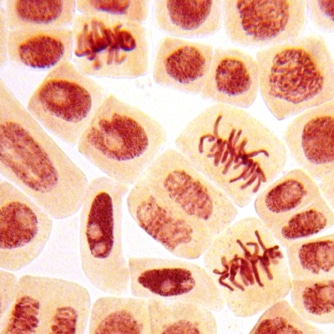Donated umbilical cord blood contains stem cells that can save the lives of patients with leukemia, lymphoma and other blood cancers. Patrick Stiff, from Loyola University Medical Center (Illinois, USA), and colleagues report that growing cord blood stem cells in a laboratory before transplanting them into patients significantly improves survival. The study examined a new technology called StemEx(R), which grows cord blood stem cells in an outside laboratory. After 21 days, the process results in a roughly 14-fold increase in the number of stem cells available for transplant. The study included 25 centers in the United States, Europe and Israel. Researchers used the StemEx technology for cord blood transplants in 101 leukemia and lymphoma patients. These patients were compared with a historical control group of 295 patients who each received a double dose of cord blood stem cells. After 100 days, the overall survival was significantly higher in the StemEx group (84.2 %) than in the control group (74.6 %). The StemEx transplants also were quicker to engraft, i.e., develop into a sufficient number of blood cells. In the StemEx group, engraftment of neutrophil blood cells took a median of 21 days, compared with 28 days in the control group. Engraftment of platelets took a median of 54 days in the StremEx group and 105 days in the control group. (Neutrophils are infection-fighting white blood cells; platelets are small blood components that help the clotting process.) The faster neutrophils and platelets are engrafted, the less time patients are vulnerable to infections and bleeding. The lead author submits that this cell-expansion technology potentially could boost the number of patients who could benefit from life-saving transplants of stem cells derived from umbilical cord blood.
Stem Cells Offer Breakthrough for Leukemia & Lymphoma
Stiff P, et al. “StemEx{R} (Copper Chelation Based) Ex Vivo Expanded Umbilical Cord Blood Stem Cell Transplantation (UCBT) Accelerates Engraftment and Improves 100 Day Survival In Myeloablated Patients Compared To a Registry Cohort Undergoing Double Unit UCBT: Results Of a Multicenter Study Of 101 Patients With Hematologic Malignancies” [Abstract #295]. Presentation at the 55th Annual Meeting of the American Society of Hematology, 9 Dec. 2013.




